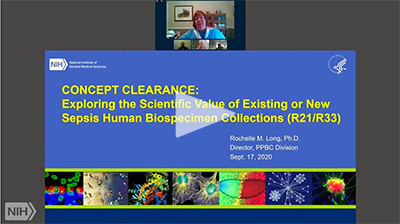As you may be aware, NIH will implement a new policy to promote the sharing of scientific data. This policy, which will require NIH grantees to submit a data management and sharing (DMS) plan as part of a grant application, goes into effect January 25. NIGMS believes that, in general, most of our grantees already meet the new NIH policy requirements, which we explain more fully in a list of FAQs.
Sharing scientific data accelerates biomedical research discovery, in part, by enabling validation of research results, providing accessibility to high-value datasets, and promoting data reuse for future research studies. Submitting a DMS plan as part of a grant application will formalize what NIGMS principal investigators already do and make explicit their plans for sharing data with the larger scientific community. Most DMS plans are expected to be concise (no more than two pages), and a sample plan is available, with a final fillable version available soon.
NIH has developed a website with details about the policy, guidance, and implementation. If you have questions about this new requirement after reviewing our FAQs, please contact NIH DMS policy staff or your NIGMS program officer.


